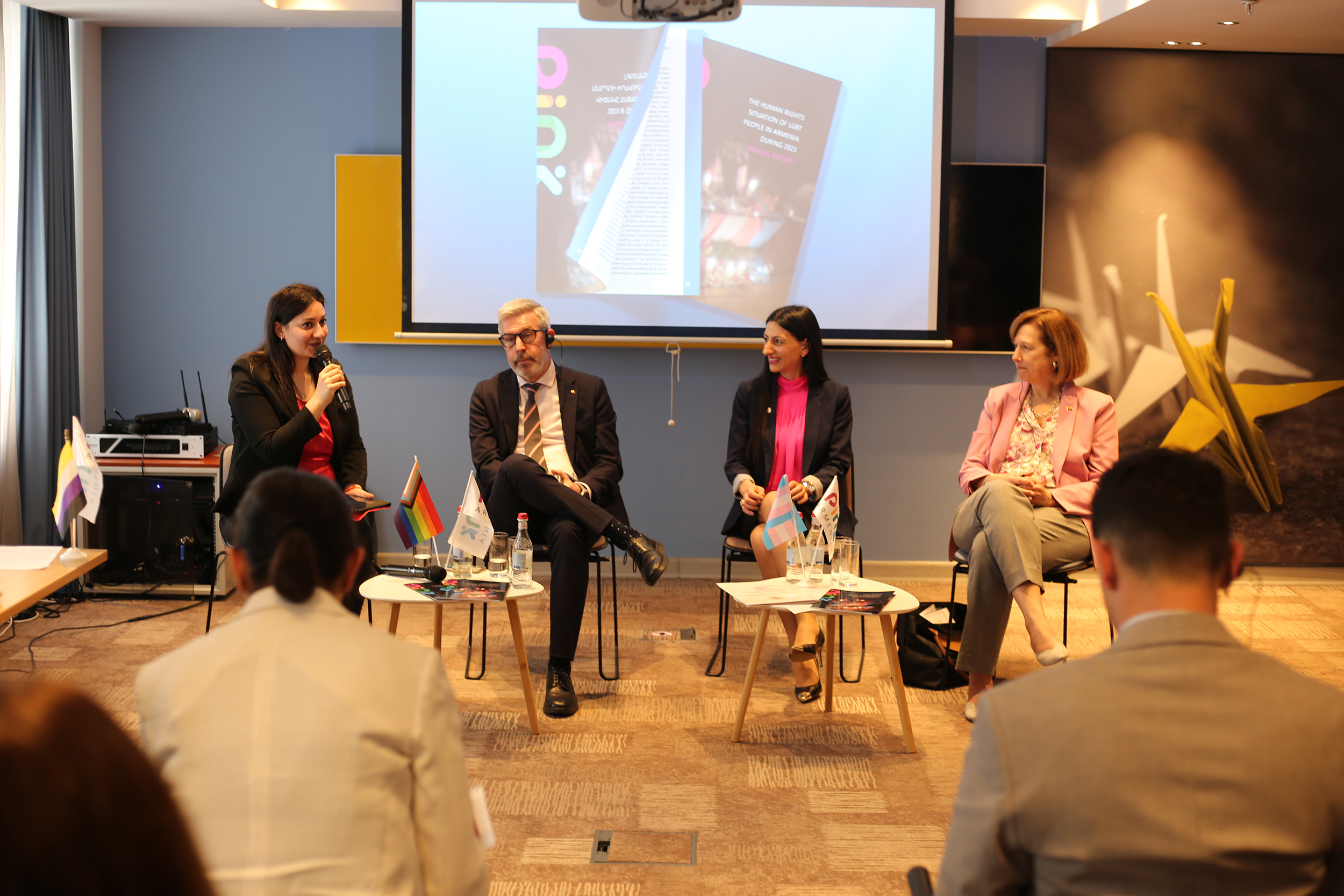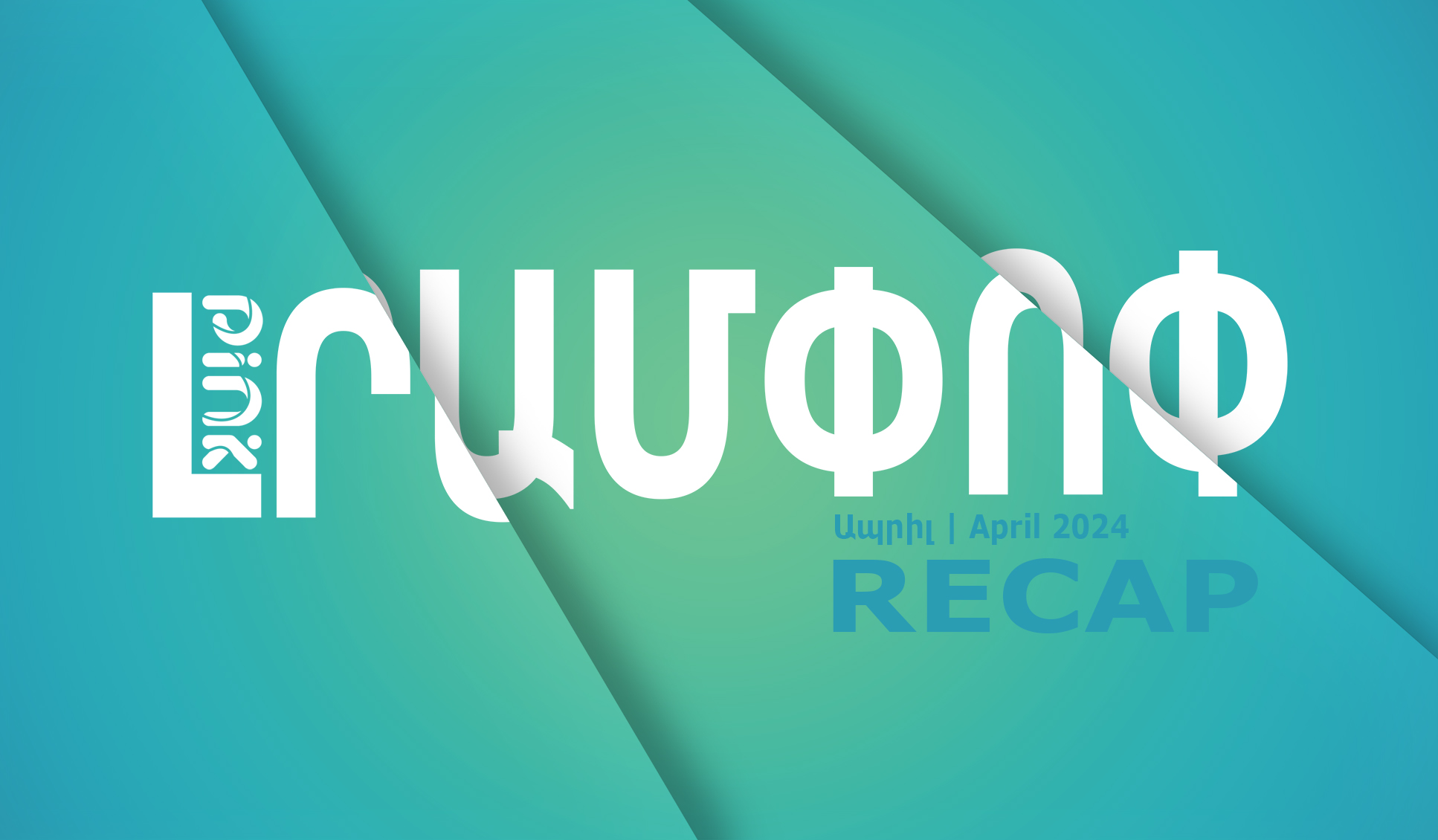OSCE/ODIHR data on hate crimes in Armenia during 2022
The Office of Democratic Institutions and Human Rights (hereinafter: ODIHR) of the Organization for Security and Co-operation in Europe (hereinafter: OSCE) publishes hate crime data reported by member states, including civil society actors each year. The report, particularly, reflects the situation of vulnerable groups based on the analysis of criminal offenses motivated with biases and hate towards any social or personal character of the victim.
The report was published on 16th of November. Number of reported hate motivated cases this year is again worrisome. Particularly, the overall number of cases documented in civil society is 53, 50 cases of which have been committed towards LGBT people, because of their sexual orientation and/or gender identity and/or expression (hereinafter: SOGI).
Referring to latest legislative amendments in the country, ODIHR, however, mentions that the law-enforcement bodies don’t record biased motives of the perpetrator, which means that the investigation cannot be proper and comprehensive. ODIHR also emphasizes the importance and need of collaboration between the State and the civil society on hate crimes, including on victim support mechanisms. It is noteworthy that there are no hate crime victim support mechanisms or even any practice of providing any kind of support for or sensitive treatment towards the victims.
ODIHR recognizes Armenian efforts in terms of legislative amendments and implementation of ODIHR’s programs on training for prosecutors, investigators and police (PAHCT and TAHCLE). However, according to Pink’s data, the implementation of these programs which supposed cascaded training for law-enforcement bodies’ representatives have been stopped.
ODIHR recalls the commitments of the State according to the Ministerial Council Decisions 9/09 and 13/06 concerning prompt investigation of hate crimes and ensuring acknowledgment of the motives of those convicted of hate crimes as well as on taking proactive and inclusive approach towards civil society as an important actor.
Pink Armenia continues recording, documentation of hate crimes as well as provision of different kinds of professional support to the victims of hate crimes on the grounds of SOGI. Analysis of reported by Pink data shows that law-enforcement bodies not only refuse to consider hate motivated crimes as such and give proper legal qualification, they even continue the practice of victimization, victim blaming, and justification of hate crimes, which traumatizes not only the victims but also the community and decreases the trust towards them, consequently, the number of cases reported to police.
We call the Ministry of Justice to invent hate crime victim support mechanisms initiating legislative regulations to refrain from ill-treatment towards the victims and to ensure a sensitive and proper approach. Law-enforcement bodies are encouraged to apply to civil society organizations in case of lack of financial or professional resources.
We call the law-enforcement agencies to record the hate crimes as such, including the biased motives of the perpetrators.




